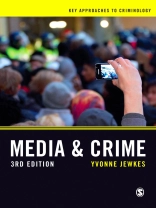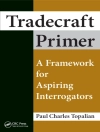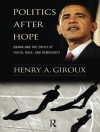This book critically examines the complex interactions between media and crime.
Written with an engaging and authoritative voice, it guides you through all the key issues, ranging from news reporting of crime, media constructions of children and women, moral panics, and media and the police to ′reality′ crime shows, surveillance and social control.
This third edition:
- Explores innovations in technology and forms of reporting, including citizen journalism.
- Examines the impact of new media including mobile, Internet and digital technologies, and social networking sites.
- Features chapters dedicated to the issues around cybercrime and crime film, along with new content on terrorism and the media.
- Shows you how to research media and crime.
- Includes discussion questions, further reading and a glossary.
- Now features a companion website, complete with links to journal articles, relevant websites and blogs.
This is essential reading for your studies in criminology, media studies, cultural studies and sociology.
The Key Approaches to Criminology series celebrates the removal of traditional barriers between disciplines and, specifically, reflects criminology’s interdisciplinary nature and focus. It brings together some of the leading scholars working at the intersections of criminology and related subjects. Each book in the series helps readers to make intellectual connections between criminology and other discourses, and to understand the importance of studying crime and criminal justice within the context of broader debates.
The series is intended to have appeal across the entire range of undergraduate and postgraduate studies and beyond, comprising books which offer introductions to the fields as well as advancing ideas and knowledge in their subject areas.
Spis treści
Theorizing Media and Crime
The Construction of Crime News
Media and Moral Panics
Media Constructions of Children: ′Evil Monsters′ and ′Tragic Victims′
Media Misogyny: Monstrous Women
Police, Offenders and Victims in the Media
Crime Films and Prison Films
Crime and the Surveillance Culture
The Role of the Internet in Crime and Deviance
(Re)Conceptualizing the Relationship between Media and Crime
O autorze
Yvonne Jewkes is Professor of Criminology at the University of Bath and Honorary Visiting Professor at the University of Melbourne. She has been carrying out prison research—much of it ethnography—for over 20 years and has spent the last decade researching and writing about prison architecture and design and their potential to rehabilitate. She has recently held two Economic and Social Research Council grants to study these topics and has worked as a consultant to prison architects and senior prison service personnel around the world. She has published extensively on various aspects of prisons and imprisonment, including (with Ben Crewe and Jamie Bennett) The Handbook on Prisons (2nd ed., 2016, Routledge). With Ben Crewe and Thomas Ugelvik, she is the Founding Editor of the new SAGE journal Incarceration.












